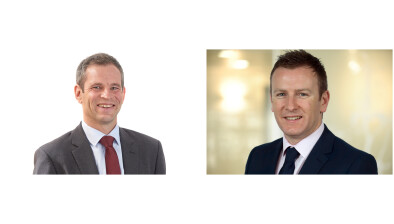Blog: How do you follow 2016?

David Watt, Executive Director of the Institute of Directors in Scotland takes a look at the year ahead.
Few, if any, have ever seen a year like 2016 and I am not that sure we want to see another.
The impact of decisions made across the world in 2016 will last with a long time and bring about changes which none of us can accurately predict at present.
The one certainty is that all the fallout from 2016 will need to be managed well if Scotland and the rest of the UK are not to suffer significant damage. The leaders of our country will need to stand up and be counted if serious and lasting damage is not to be inflicted on our society.
The Brexit vote revealed several things in the UK – including many significant divides in our communities and very strong antagonistic views on either side of the debate. To see any sustainable way forward, politicians must come together to get people to follow them so we do not become a nation ruled by xenophobia and difference instead of one where we work together for the common good.
Regardless of personal political views, people in Scotland must welcome the clear stance articulated by the First Minister in her Government’s paper – “Scotland’s Place in Europe”. This type of clear positioning helps businesses plan for the future knowing what the political climate is. We all wait now for some similar document from the Westminster Government – recognising that neither administration is likely to achieve all they aspire to, but clarity of purpose is a helpful guide.
This requires political leadership, and indeed, statesmanship. Putting the country’s needs above short term political posturing – the lack of which has diminished the public view of all our leaders and has led to rebellion at the ballot box.
In past year I have called for evidence based (or at least evidence informed) policy making and sadly 2016 saw even less of this – with Michael Gove delighting in the fact the public had ignored experts in voting for Brexit. “Why should we listen to experts?” - possibly because they know what they are talking about!
A worrying example of this comes with the President Elect in the USA who apparently doesn’t listen to security briefings and said during the elections that he knows better than his Generals. Given Mr Putin flexing his muscles around the world – notably around Britain – we can only hope he starts listening to his experts very soon.
Nearer to home too, we also have worrying signs of a failure to recognise good governance when making political statements or judgements. Recent examples relate to the railways and to the business support agency review.
In the former, many have publicly pillared the franchise holder for falling 1% behind performance targets at a time of considerable change – while still being the best performing operator in the UK.
Some have even given political air-space to the crazy concept of re-nationalising the railways. No one who ever travelled on British Rail could believe that is a good idea and anyone proposing it should be cautious about where the idea originated. Sound leadership is needed to positively progress the current partnership of operator and Government as the stakeholder. Working together will solve rather than create problems – it always does.
Early reports of the enterprise agencies review seem to suggest some type of centralising agenda designed to improve governance. Good governance is about ensuring what you have agreed and intend to be done is actually being implemented and the further away delivery is from the guiding agency, the harder it is to guarantee success.
The great thing about Scotland is we are so close and we all know what is happening. You can pull people in to work collaboratively to achieve agreed goals quite easily – it just needs confident leadership and thoughtful direction.
In 2017, we are going to work doubly hard to contribute even more to the leadership improvement agenda - the key determinant to success wherever you operate in business. We will do our bit with directors and in the boardrooms across Scotland in all sectors – building improved corporate performance from the very top of our civic networks, through better collaboration and dynamic strategic planning.
If others can do their bit in their space, making all-important marginal gains along the way, then we will see a real sea change in our economic and national achievement, even in the face of some quite extreme challenges.






